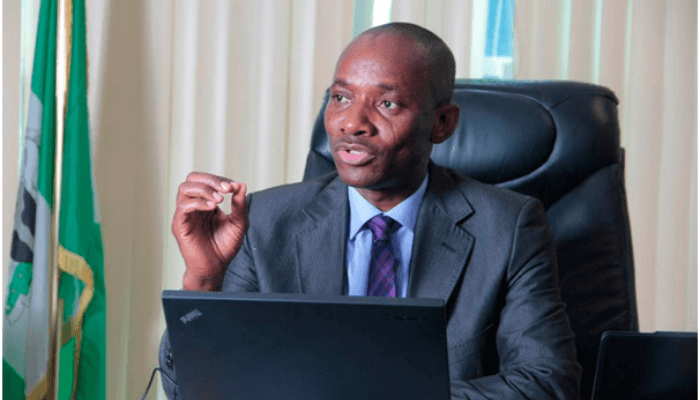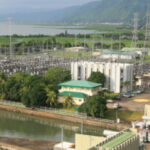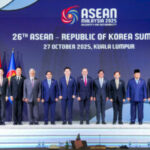Former Chairman of the Nigerian Electricity Regulatory Commission (NERC), Sam Amadi, has condemned ongoing moves to amend the Electricity Act, warning that such rushed reforms threaten the fragile progress and sustainability of the country's power sector.
Amadi said this while speaking at the 10th anniversary celebration of the Association of Power Generating Companies of Nigeria in Abuja on Monday.
He stressed the need for patience, flexibility and commitment to refine existing models rather than resorting to disruptive, “destroy and rebuild” models. He warned that hasty amendments to the Act would ultimately fail to solve the fundamental problems of the sector, particularly the lack of liquidity and investment in the network.
“I want to make a point around our tendency to solve problems quickly. We started creating state electricity markets, subnational markets. In my view, it was rushed; in my view, there are a lot of dimensions that we did not take into account. But since we are on this trajectory, we should not cancel it by trying to step back.
“What specifically am I trying to say? I understand that there are people who are pushing for some amendments to the Electricity Act. I think we should accept that there will be failures and successes.
He said, “We must accept that the construction of this electricity market will be a trial and error. We should not be so worried about failure that once we start the experiment, we try to go back again and again. If there is trouble, we should think about modification on the margins, not about destruction and reconstruction.”
Amadi decried that the Nigerian power sector is tied up with politics which allows policy makers to be hasty in confronting problems. “They start looking for solutions and the solution turns out to be worse than the problem.
Also Read: Eko Disco launches free prepaid meter rollout under MAF Tranche B
“I think we need to have some stability to make things work and learn from errors, and then make modifications, keep changing the model until we find a solution,” he said.
Acknowledging continued frustration over unreliable and inadequate electricity supply, Amadi argued that it is wrong to dismiss the progress made since privatization.
However, he said it is difficult to talk about the success of the power sector because people do not realize it easily. “But those successes are real, but maybe they're not enough. And that's our difficulty.”
Amadi stressed that while due attention is being given to the distribution and transmission segments, the generation side also needs immediate attention. He cautioned against a narrow approach, saying that even if the market crisis is resolved today, more time will be required to increase production capacity.
Noting improvements in the genco side of the power market, Amadi said the sector has the potential to improve further, adding that the sector needs stability.
Speaking further, the former NERC Chairman emphasized that state regulatory authorities should focus on capacity building, expansion and reform. He stressed that they should “move slowly” and focus on the market.
“Focus on efficiency; gradually, you'll improve regulation. So my advice would be that because we're a third world country, there's a lot of outsourcing of models to us, you know—transplantation, different rules, different processes—and no one is sitting back to say, actually, how can this be optimized? Do we need this level of reform, this level of sophistication, that we're running? Now, this is the problem we have: 20 Up to subnational electricity markets may be created in the next two years, but none of them have their own generation plants serving them.
Amadi feared that when states began supporting the grid with different laws that are not synchronized, it could create a process whereby gencos would be stuck with electricity that could not be sold at a cost-efficient price, as it would involve transactions and contracts with different sub-national electricity markets.
He stressed the need for a framework that allows existing Gencos to expand and deal with states without regulatory hurdles and additional costs.
“And no one is thinking about: Are their rules convergence, are their rules the same. And so we could get into a problem where we have 20 electricity markets, and then load can no longer be sold into those markets because some of them are going off-grid, some of them are running on renewables, and some of them have their own generators and embedded generation. So I feel like that's something we need to look at. needed,” he said.
Saying that Nigeria currently does not have adequate administrative rules and resources to manage its federal structure, Amadi questioned whether there are plans to create a knowledge base for federal-state collaboration that will allow Nigeria to have a sustainable national grid even to service the 36 electricity markets.
“My fear is that we will go back in 10 years and find that many states have failed miserably in the electricity market. The Nigerian factor will work to find a way to rebuild a national grid and shared electricity.
“At the moment, no one is thinking about how states are ensuring energy sustainability. Don't forget that the grid is built around equity and equal access. We share the load, which means the national interest is that no part of Nigeria is without access to electricity. That's why all the electricity could actually go to Lagos, but we share it.
“But where we are going now is there is no guarantee that anyone will have any mandated supply of electricity. That means each state electricity market will protect itself. Then the question is how will this map into our constitutional framework where the government feels that even if there is poverty, we should share it equally?
“What is the legal framework in place to ensure that tomorrow, 10 years from now, we don't come back into this room and dismantle state electricity markets and say we can't have an electricity market where some parts have power and some parts don't have power,” he said.











